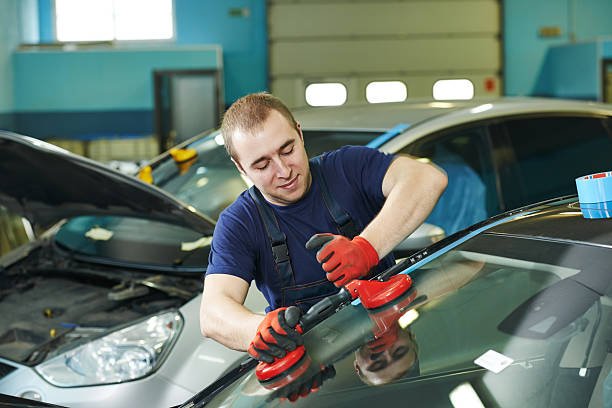
Newport Beach Express Auto Glass
Clear Views, Safe Journeys – Newport Beach's Premier Windshield Repair Experts!
Commercial vehicles, ranging from delivery trucks to construction equipment, are vital to many businesses. Their windshields and auto glass are not only crucial for the driver's visibility but also for the safety of the vehicle and its cargo. This comprehensive guide delves into the nuances of auto glass repair and replacement for commercial vehicles, highlighting the unique challenges and considerations involved.
The primary function of auto glass in commercial vehicles is to provide clear visibility for safe driving. Any impairment, like cracks or chips, can significantly compromise safety.
Commercial vehicles are subject to stringent safety standards and regulations. Maintaining intact auto glass is often a legal requirement to avoid fines and penalties.
Damaged auto glass can negatively impact the professional image of a business, potentially affecting customer trust and corporate reputation.
Chips and cracks are common in commercial vehicles, especially those frequently on the road. These can range from small dings to large cracks that span the windshield.
Heavy-duty vehicles are often exposed to extreme conditions, leading to stress damage in auto glass.
Commercial vehicles can be targets for vandalism and theft, resulting in broken windows and windshields.
The decision to repair or replace depends on the size, type, and location of the damage. Small chips and cracks can often be repaired, while larger or more strategically located damage may require replacement.
While repair is generally more cost-effective, replacement may be necessary for extensive damage or to meet safety standards.
Time is a critical factor for commercial vehicles. Repair usually takes less time than replacement, meaning less downtime and disruption to business operations.
Commercial vehicles come in various sizes and designs, requiring specialized glass and installation techniques.
While managing repairs and replacements across a fleet, it's crucial to be prepared for environmental challenges, including adverse weather conditions. For specific strategies, see our guide on how to handle auto glass repair in bad weather.
Some commercial vehicles, like those used in construction or hazardous material transport, require specialized, more durable glass.
A professional assessment to determine the extent of the damage and the best course of action is crucial.
Modern repair techniques involve injecting a resin into the chip or crack, then curing and polishing it to restore integrity and visibility.
Repairs are generally quick and cost-effective, making them a preferred option for minor damage.
The first step is the careful removal of the damaged glass, ensuring no damage to the vehicle.
A windshield or window specific to the vehicle’s make and model is installed using high-quality adhesives.
Post-installation, the adhesive must cure, and safety checks are conducted to ensure the installation meets regulatory standards.
Most commercial vehicle insurance policies cover auto glass repair and replacement, but it's important to understand the extent of the coverage and any deductibles.
Opt for services that provide a warranty on both the glass and the installation work.
For minimal disruption, schedule repairs during off-hours or less busy periods.
Many companies offer mobile auto glass services, performing repairs or replacements onsite, saving time and reducing downtime.
Ensure that the service provider adheres to safety standards and uses glass and materials that meet or exceed industry specifications.
Regular inspections and maintenance of auto glass are crucial for compliance and safety, especially in commercial operations.

Vehicles equipped with ADAS may require calibration of cameras and sensors following windshield replacement.
Technologies like heated windshields or noise-reducing glass may require specialized replacement techniques.
Opt for services that recycle old auto glass, reducing the environmental impact of replacements.
Inquire about the use of eco-friendly materials and adhesives during the repair or replacement process.
Choose a provider with experience in commercial vehicle glass, understanding the unique needs and challenges.
For businesses with multiple vehicles, select a provider capable of handling fleet services efficiently.
Check for certifications and read reviews to gauge the provider’s reputation and quality of service.
Auto glass repair and replacement in commercial vehicles is a task that demands expertise, precision, and an understanding of the unique challenges involved. Whether it’s a small chip repair or a full windshield replacement, the safety, legal compliance, and operational efficiency of the business depend on making the right decision. By choosing the right service provider and understanding the intricacies of auto glass maintenance in commercial vehicles, businesses can ensure that their fleet remains safe, compliant, and ready for the road.
100 Vilaggio #235 Newport Beach, CA 92660, United States
Monday to Sunday 7 AM to 9 PM